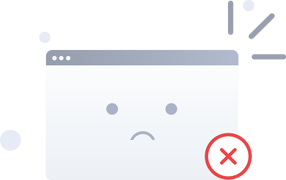
网站暂时无法访问
该网站未根据工信部相关法律进行备案。
法律依据:《非经营性互联网信息服务备案管理办法》
如果您是普通访客:
请等待网站备案后再次尝试访问。
如果您是网站所有者:
网站无法访问常见原因:网站未完成备案、未在中企完成备案接入、或者您网站内容与备案信息不符、备案信息不准确等,请联系您的责任商务。
如您的网站已备案完成,网站访问将可能会有延迟,预计备案成功24小时后可进行访问,请您耐性等待!

The website is temporarily inaccessible
The website has not been registered in accordance with relevant laws of the Ministry of Industry and Information Technology.
Legal basis: "Management Measures for Filing of Non operational Internet Information Services"
If you are a regular visitor:
Please wait for the website to be registered and try accessing it again.
If you are the website owner:
Common reasons for website inability to access: website has not completed registration, registration access has not been completed in a Chinese enterprise, or your website content does not match the registration information, or the registration information is inaccurate. Please contact your responsible business representative.
If your website has been registered, there may be delays in website access. It is expected to be accessed 24 hours after successful registration. Please be patient and wait!
Click to enter the ICP filing management system for query>>